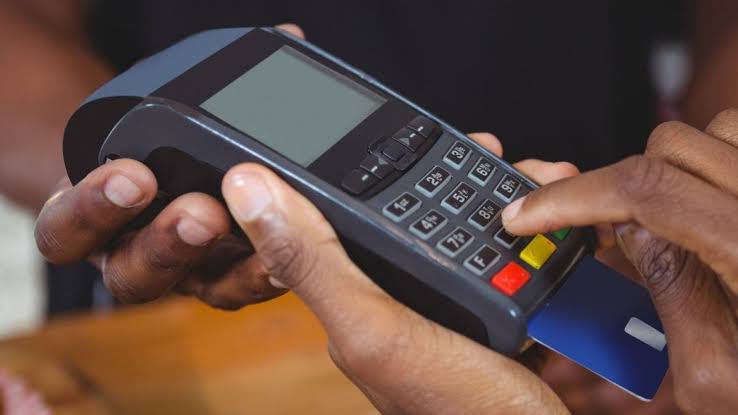Graffiti
OPINION… PoS and Transfer Pricing: Nigeria’s Cashless Dilemma

Nigeria’s move to a cashless economy is a tremendous change, offering more convenience and easier ways to manage money. At the center of this shift are Point of Sale (PoS) terminals—small devices that have become a part of daily life. From busy streets in Lagos to quiet villages, PoS terminals have changed how people pay for goods and services.
They make it easier to move away from cash, but this change also brings unfamiliar problems, especially in a country with long-standing challenges like unstable electricity and poor infrastructure.
For years, Nigerians have relied on generators because of unreliable electricity. This dependence has been costly and created inequality. The frequent collapse of the national grid, as highlighted in recent reports, underscores the fragility of essential infrastructure. In the same way, PoS terminals depend on steady electricity and internet to function properly. When these fail—as they often do—the weaknesses of a cashless system become painfully clear.
Some banks and PoS operators exploit these vulnerabilities. Investigations have uncovered cases where banks deliberately keep ATMs empty to push customers toward PoS terminals. These terminals often charge higher fees, allowing banks and operators to profit at the expense of users, many of whom struggle to afford these extra costs. This practice hurts trust in the financial system. The problem is worse in areas with fewer banking options. In rural communities, PoS operators often charge remarkably high fees because people have no other choices. This raises important questions about who benefits from this cashless system and at what cost.
There are also issues with how PoS transactions are connected to companies abroad. Many PoS operators pay fees to foreign parent companies for things like technology or branding. These payments are supposed to follow rules about fair pricing, called transfer pricing. The idea is to make sure the fees are not too high and that profits stay in Nigeria. But when these fees are inflated, money is moved out of the country to places with lower taxes. This reduces the money Nigeria can collect and takes away funds needed for things like healthcare, education, and infrastructure.
READ ALSO: Sen Kingibe angrily walks out of Senate after Akpabio disallowed motion on FCT demolitions
Without proper checks, the problem gets worse. Some companies may inflate the fees they pay to their foreign affiliates, making it look like they earned less profit in Nigeria. This means they pay less tax. To fix this, new tax reforms are being introduced. These reforms aim to make PoS transactions more transparent and fairer.
They also encourage agreements between PoS operators and tax authorities to ensure everyone follows the rules. These changes are meant to protect Nigeria’s interests and make sure PoS activities contribute the right amount of tax to the economy.
However, making laws is not enough. Nigeria has had many good policies fail because they were not implemented properly. For the cashless system to work, the government must fix key problems. Reliable electricity and internet are necessary. Investments in things like solar power can help PoS terminals work even in remote areas. It’s also important to teach people how to use these systems safely. Public campaigns can help Nigerians understand digital payments and avoid fraud.
This change also affects Nigerians living abroad. Many send money home to support their families. If PoS fees stay high or ATMs remain empty, the value of their remittances will shrink. This puts more pressure on both senders and receivers. If people feel the system is unfair, they may avoid formal channels and use less secure ways to send money.
On the bright side, this shift offers opportunities. Nigerians in the tech and fintech sectors, including those living abroad, can help create better and cheaper payment systems. These systems could build trust and make transactions smoother, helping both diasporans and their families back home.
The new tax reforms also affect diaspora-led businesses that have ties to Nigeria. While the reforms aim to be fair, they require businesses to carefully follow the rules to avoid problems. Achieving the goal of a cashless economy will take a balance between ambition and fairness. If the government and other players fail to fix the system’s weaknesses, the PoS revolution could become another example of uneven progress in Nigeria. Now is the time to make sure this change works for everyone, leaving no one behind.
AUTHOR: Abidemi Adebamiwa
Articles published in our Graffiti section are strictly the opinion of the writers and do not represent the views of Ripples Nigeria or its editorial stand.
Join the conversation
Support Ripples Nigeria, hold up solutions journalism
Balanced, fearless journalism driven by data comes at huge financial costs.
As a media platform, we hold leadership accountable and will not trade the right to press freedom and free speech for a piece of cake.
If you like what we do, and are ready to uphold solutions journalism, kindly donate to the Ripples Nigeria cause.
Your support would help to ensure that citizens and institutions continue to have free access to credible and reliable information for societal development.
















